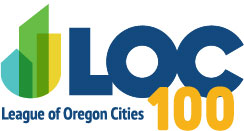LOC News
City Action Needed as Recycling Bills Passes Ways & Means
On Wednesday, the Joint Ways and Means Subcommittee on Natural Resources held a work session on SB 582 A, the bill that aims to modernize Oregon’s recycling system. SB 582A was amended with the -A21 amendments, and today passed out of the Joint Ways and Means Committee and will move next to the Senate Floor, followed by the House Floor. Since the end of the legislative session (sine die) is imminent, it is difficult to estimate exactly when this bill will be heard on the Senate and House floors next week. Cities are encouraged to reach out to their legislators to urge their support on SB 582 B.
The LOC has been working with a coalition of approximately 20 entities to support SB 582, which proposes significant modifications to Oregon’s recycling system. The bill levels the playing field of recycling across the state by: expanding access to effective recycling in rural communities; eliminating confusion about what can be recycled; keeping plastic out of rivers and oceans; and requiring the companies that use specific packaging to have a stake in the system to which they are contributing. A more detailed summary of the legislation is included below.
SB 582 B:
- Establishes a producer responsibility model and requires certain producers of “covered products” to financially contribute to (through annual fees) and participate in an approved producer responsibility organization (PRO).
- Defines “covered products” to include packaging; printing and writing paper; and food serviceware. Provides for specific exemptions to the definition of “covered products” and provides additional clarity through definitions to the terms “packaging,” “printing and writing paper” and “food serviceware.”
- Authorizes the Environmental Quality Commission to adopt a uniform statewide list of materials that are suitable for recycling collection. Under current law, the list of recyclable materials varies locally which has resulted in ongoing consumer confusion, inequities and recycling contamination.
- Requires producer responsibility organizations to submit a plan to the DEQ that outlines how the PRO will work within the recycling system to meet specified provisions of the bill.
- Requires local governments that provide the opportunity to recycle to also provide multifamily properties with collection of materials on the uniform statewide list and ensure adequate space and container placement for multifamily properties.
- Outlines how funds collected through the PRO will be made available to local governments for eligible costs. Compensation to local governments can occur either in advance or as a reimbursement. Examples of eligible costs for compensation include:
- The costs of transporting covered products from a recycling depot or recycling reload facility to a commingled recycling processing facility or a responsible end market.
- The costs of contamination reduction programming for residential and commercial customers.
- The costs of upgrading or establishing recycling at multifamily facilities, including site improvements and construction of enclosures. Funding available for this purpose will be based on a periodic needs assessment conducted by DEQ in partnership with local governments.
- The costs of contamination reduction programming for residential and commercial customers. Funding available for this purpose will also be capped, under the proposed amendment, at $3 per capita.
- Requires DEQ to conduct a needs assessment to identify the contribution of different types of covered products to litter and marine debris in Oregon in coordination with local governments, the Department of Transportation, the State Parks and Recreation Department, producer responsibility organizations and the Oregon Recycling System Advisory Council. The needs assessment may include recommendations for adding litter and marine debris cleanup and prevention to the responsibilities of PROs and recommendations for funding those responsibilities.
- Establishes an Oregon Recycling System Advisory Council and its responsibilities, including PRO plan review and making recommendations to the Oregon Environmental Quality Commission about the uniform statewide collection list of recyclable materials.
Contact: Tracy Rutten Rainey, Lobbyist – trutten@orcities.org
Last Updated 6/18/21

